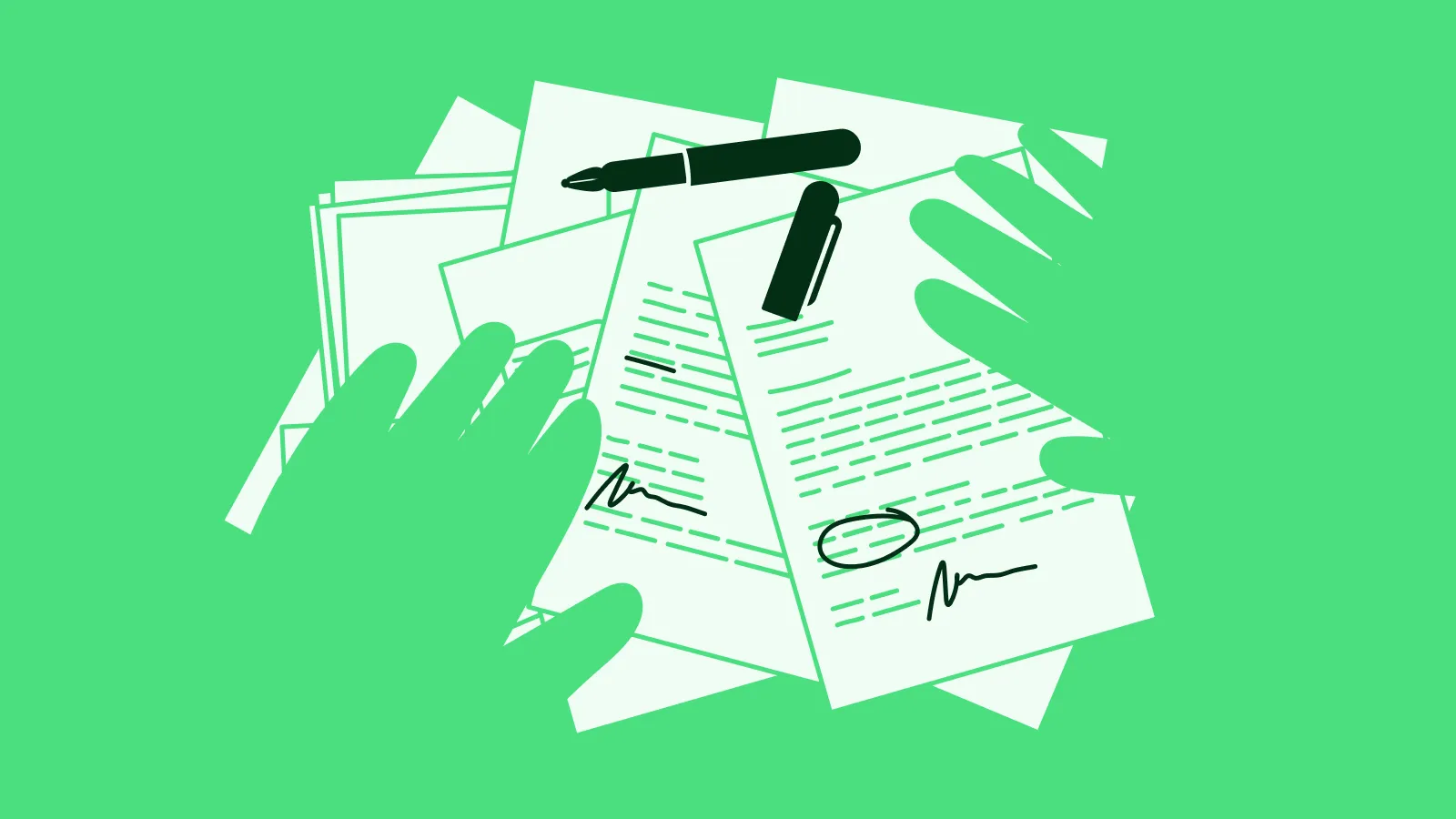Getting a Mortgage with No Credit Score
No credit history doesn’t have to mean no mortgage. Our guide shows you how to build your credit score and secure the mortgage you need.
Your home may be repossessed if you do not keep up repayments on your mortgage.
Exclusive broker partner to

Author: Michael Whitehead, Head of Content
Reviewer: Paul Coss, Haysto Co-Founder and Chief Customer Officer
Updated: Oct 06 2025 7 mins
For mortgage lenders, a credit score simply proves you’re reliable with borrowed money. If you’ve never had a credit card, loan, or even household bills in your name, they don’t have enough data to make that assessment.
While some mortgage lenders might say "computer says no" to a lack of credit history, there are plenty more who’re happy to look beyond the numbers and see the wider picture.
In this guide, we’ll show you the clear steps to turn a lack of credit history into a successful mortgage application. We’ll cover how to build your profile, what deposit you'll need, and the smart approach to finding a lender who gets your unique situation.
Quick Summary:
Don't panic if your credit file is blank; it’s much easier to fix than bad credit. Follow these five essential steps to quickly become mortgage-ready and open up your best options:
No Credit doesn't mean bad credit: Lenders just lack data. Your thin file is a common issue, especially for first-time buyers, and it's something we can easily help you fix.
Register on the electoral roll: This is the single fastest way to verify your identity and give your credit file the immediate boost it needs.
Build a track record: Establish a minimum of six months positive payment history. Get a basic credit card and pay it off in full every month, or put utility bills in your name.
Save a bigger deposit: Aiming for a 10-15% deposit (instead of 5%) significantly reduces the risk for lenders and massively increases the number of mortgage deals available to you.
Look beyond the high street: If mainstream banks say no, don't worry. Specialist lenders assess the whole picture of your finances, including income and stable savings, rather than just your credit score.
Can You Get a Mortgage without a Credit Score?
Yes, it’s possible, but it does take a little extra know-how. If you have no recent borrowing or financial products (or have never had them), you won't have a credit score, making you a financial unknown to mortgage lenders.
Mainstream lenders rely heavily on credit scoring because it's fast and reduces their risk. When they run a check and find little to no financial footprint, they often reject the application immediately because they can’t be sure how reliable you’ll be as a borrower.
However, specialist mortgage lenders are much more flexible. They often look at the overall strength of your finances, including your income, job stability, and bank statements, rather than just the credit score alone. If you can provide solid proof that you manage money well, they’ll listen to your story.
Why Might You Have No Credit History?
Having no credit history is not the same as having bad credit. Bad credit means you’ve had issues like missed payments or defaults. No credit history simply means you haven't been an active credit user recently or at all.
There are many perfectly sensible reasons why you might not have a credit history when applying for a mortgage. These are usually easy to fix once you know the steps to take:
You're a first-time buyer: You've been living at home with parents, so utility bills, tenancy agreements, and other household finance accounts aren't in your name.
New to the UK: If you’ve recently moved to the country, you simply haven't had time to build a financial footprint yet.
Living off savings: If you're independently wealthy or manage your cash flow carefully, you might have never needed to borrow money, use a credit card, or take out a loan.
Outdated record: Credit files usually only hold information for the last six years. If you’ve been debt-free and mortgage-free for longer than that, your file might look empty.
Not on the electoral roll: This is one of the easiest fixes. Lenders use the electoral roll to confirm your identity and address; if you aren’t registered, your file will appear as thin or non-existent.
How Long Does It Take to Build a Good Credit Score?
Building a credit history from scratch is actually quicker and more straightforward than trying to repair a damaged one. You should aim for at least six months of consistent, responsible activity before submitting a full mortgage application. This short period allows new financial habits to be recorded on your credit file.
The goal isn't just to achieve a high score, but to establish a history of consistent, on-time payments that demonstrates to lenders you’re a trustworthy borrower. Every month you pay a bill in full and on time, it acts as a gold star on your financial report card. By focusing on smart money management now, you'll be giving yourself the best chance of success further down the line.
How to Build Your Credit History
You need to take proactive steps to make yourself visible to lenders. Getting on the electoral roll is the first and most important step, but here are a few other quick wins to help you build a healthy financial footprint:
Get on the electoral roll: Registering at your current address is the quickest and easiest way to verify your identity and boost your visibility to credit agencies.
Open a UK bank account: If you’re new to the UK, establishing a primary, current account and having your wages paid into it is essential.
Take out a mobile phone contract: While it’s tempting to pay for your phone via a cheap pay-as-you-go deal, a monthly contract is a form of credit agreement, and successfully managing the payments helps build your score.
Use a credit card responsibly: Apply for a basic, low-limit credit card and use it for small purchases you can afford to pay off in full every single month. This proves you can manage borrowing without falling into debt.
Get named on bills: If you live with a partner or housemate, make sure your name is registered on household utilities or council tax. These are all forms of credit and contribute to your overall financial profile.
Why Pick Picnic?
With access to thousands of mortgage products, easy-to-use technology, and 100+ experts, our award-winning service is with you every step of the way.
Your home may be repossessed if you do not keep up repayments on your mortgage.
Can First-Time Buyers Get a Mortgage with No Credit History?
Yes, absolutely. Being a first-time buyer often goes hand-in-hand with having little to no credit history, simply because you haven't needed extensive financial products yet.
Lenders understand that everyone has to start somewhere, but they will scrutinise your application a little more closely to compensate for the lack of credit data. This is why following the steps to build your score, as outlined above, is so crucial for first-time buyers.
The key to success is pairing that recently established, positive credit history with a strong deposit and evidence of consistent savings. If you can show several months of rent or savings deposits that match or exceed a potential mortgage repayment, you’re making a compelling case that you can afford the loan.
Will You Need a Higher Deposit?
Generally speaking, yes, you should prepare to save for a larger deposit if you have a thin or non-existent credit file. This isn't a penalty, but a way for the lender to offset the perceived risk.
Think of it this way: a larger deposit reduces the loan-to-value (LTV) ratio, which is the percentage of the property price you're borrowing. If the lender is taking less risk, they’re naturally more inclined to be flexible on other areas of your application, like your credit history.
While a minimum of 5% is standard for many residential mortgages, aiming for 10% or even 15% will significantly open up your options. A substantial deposit often acts as proof of financial competence, demonstrating you have the discipline to save and manage money effectively over time.
Can You Get a No-Credit-Check Mortgage?
No, you won’t get a mortgage without a credit check. Any legitimate mortgage lender, whether a high-street bank or a specialist, is legally required to check your credit file before offering a loan. This is simply standard procedure to assess risk and affordability.
How the lender interprets that credit check is the important part. Mainstream lenders often use automated scoring systems that reject applicants with low or non-existent credit scores. However, specialist lenders will often manually assess your entire financial situation.
If you can provide a clear explanation for why your credit file is thin, backed up by strong evidence of stable income, employment, and savings, a specialist lender is more likely to make the decision that fits your circumstances.
Mortgage Lenders that Don't Rely on Credit Scoring
You won’t find many of these specialist lenders on the high street, as they often work only through experienced mortgage brokers. Their whole business model is built around assessing more complex cases.
These are the lenders who are happy to look at the 'why' behind your credit file. For instance, they will consider:
Manual underwriting: A human reviews your application rather than an automated system. This allows them to weigh the context of your situation.
Alternative proof of reliability: They’ll look at things like stable rental payment history, long-term employment records, and proof of significant savings as evidence of your ability to manage money.
Flexible criteria: They are generally more open to low deposit applications (meaning you can borrow more), provided the rest of your financial picture is strong.
Working with a broker who understands this niche market is key - like us! Our team of mortgage experts already know which specialist lenders are most likely to approve an application from someone with a thin file and will guide you straight to them.
Why Pick Picnic?
You shouldn’t have to navigate this maze alone. Trying to secure a mortgage with little or no credit history requires a specialist approach, and that's exactly what we provide.
Through our sister brand, Haysto, we’ve made mortgages possible for thousands of people with more complex mortgage needs, including those with a low credit score.
As a result, we already have strong ties with some of the U.K.’s most respected specialist mortgage lenders, including Bluestone Mortgages, Pepper Money, Aldermore, Kensington Mortgages, and West One Loans.
When you choose Picnic, we’ll match you with a Mortgage Expert who has the right experience to help with your specific situation. For applicants with no credit history, that means you’ll have up to four members of Haysto’s mortgage team working exclusively on your application from start to finish.
Start Your Mortgage Journey with Picnic!
Getting a mortgage when you have little or no credit history is possible. The key is knowing that you need to be proactive in your approach. Start by quickly building a basic credit footprint, register on the electoral roll, and demonstrate a strong habit of saving money.
Don't let a lack of history stop you from making your next big move. Because high-street banks rely on automated scoring, the best route to approval is almost always through a specialist lender. By finding the right lender, you’ll be able to present the complete picture of your finances and boost your chances of success.
Get in touch with us today. We’ll match you with a Mortgage Expert who can walk you through the process from start to finish.
Related Pages
The Picnic Guide To Buying a Home

How Conveyancing Works

How Stamp Duty Works

Choosing Your Mortgage

Speak to One of Our Experts
First or next move, remortgaging or investing - get clear advice from our award-winning experts to help you find the right mortgage.
Your home may be repossessed if you do not keep up repayments on your mortgage.